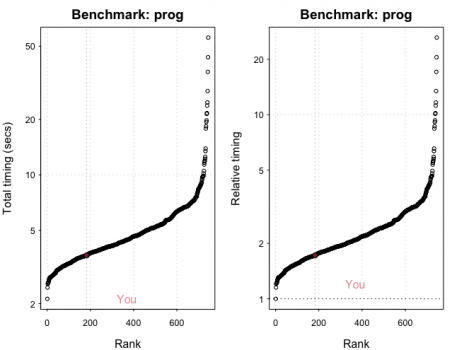I know there are tons of posts with benchmarks and tests whether a given software works, but I would like to dedicate this thread to data science apps e.g. R, RStudio, SPSS, Python (I know it will work natively), QGIS and additional software that researchers use to create illustrations as e.g. CorelDraw, Gimp....
Has any of you tried out R or SPSS under a new M1 Macbook, do either of these work fine under Rosetta 2 (faster / slower / do not work at all), as I suppose none has a native ARM version yet. Or, did anyone try CorelDraw as well?
Don't hesitate to post new questions and answers, but please focus on data science apps.
There are useful discussion related to the topic here

 github.com
github.com
 discussions.apple.com
discussions.apple.com
 developer.r-project.org
developer.r-project.org

 www.researchgate.net
www.researchgate.net
but no answers yet....
Has any of you tried out R or SPSS under a new M1 Macbook, do either of these work fine under Rosetta 2 (faster / slower / do not work at all), as I suppose none has a native ARM version yet. Or, did anyone try CorelDraw as well?
Don't hesitate to post new questions and answers, but please focus on data science apps.
There are useful discussion related to the topic here
GitHub - ThatGuySam/doesitarm: 🦾 A list of reported app support for Apple Silicon as well as Apple M4 and M3 Ultra Macs
🦾 A list of reported app support for Apple Silicon as well as Apple M4 and M3 Ultra Macs - ThatGuySam/doesitarm
Does the M1 MacBook pro 13 support data s… - Apple Community
Will R Work on Apple Silicon? - The R Blog

Data science (R and SPSS 26) under Rosetta 2 / Apple silicon M1?
Hi everyone, did any of you try out R or SPSS under a new M1 Macbook, do either of these work fine under Rosetta 2 (faster / slower / do not work at all), as I suppose none has a native ARM...
but no answers yet....



